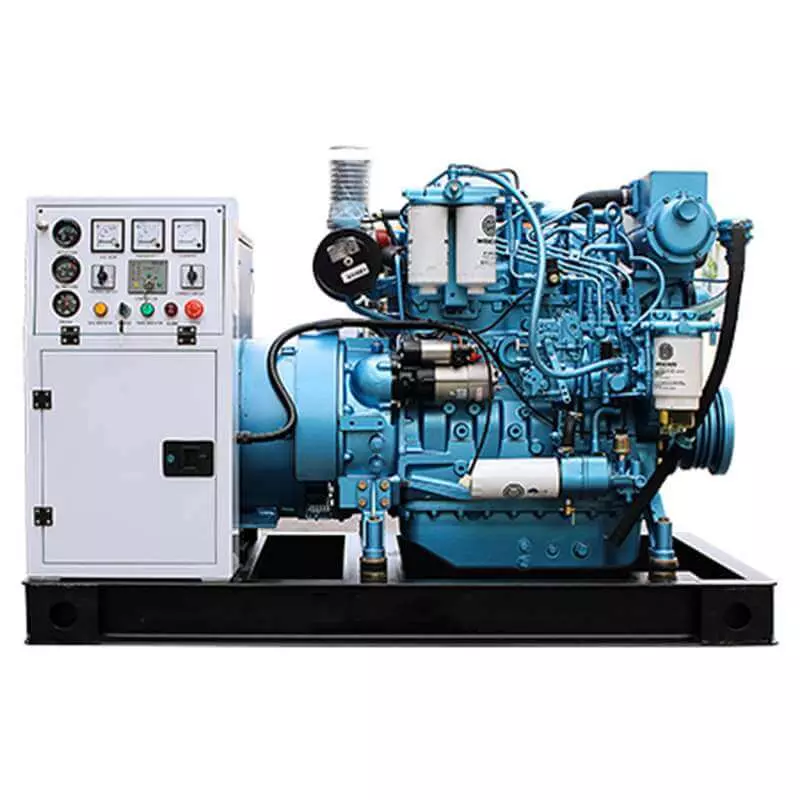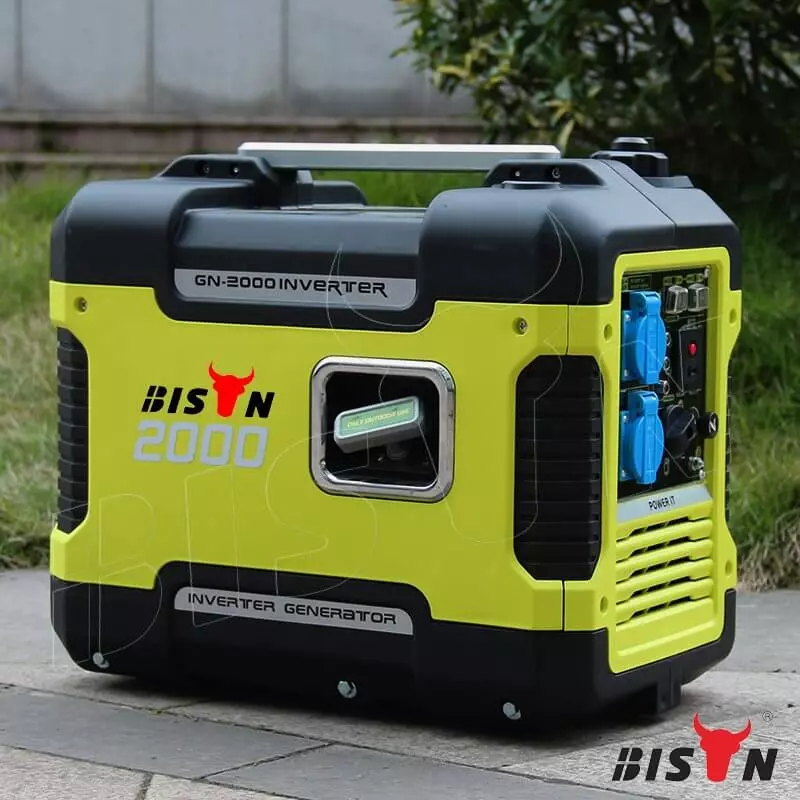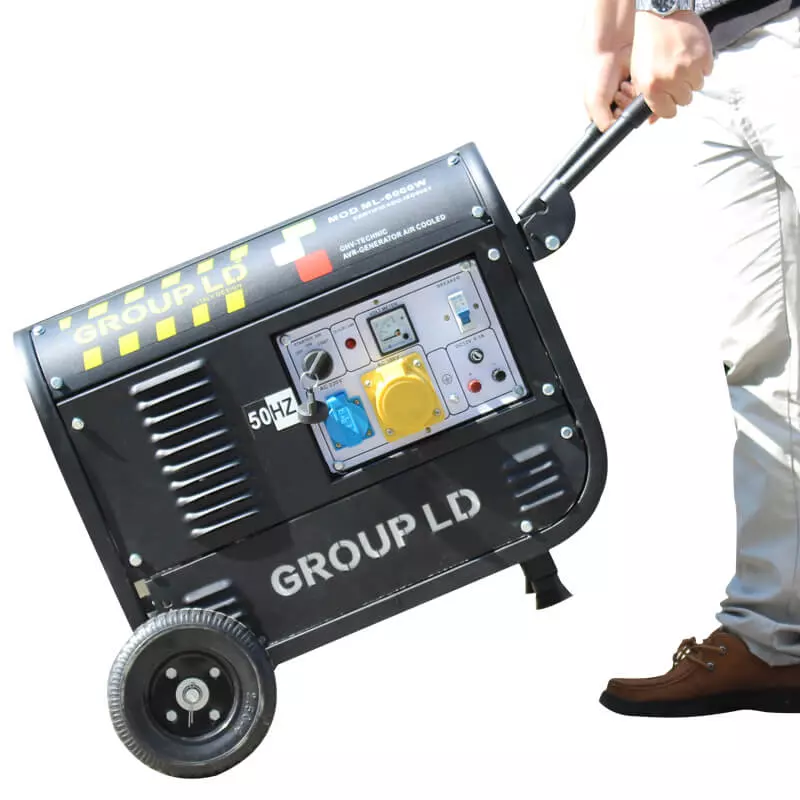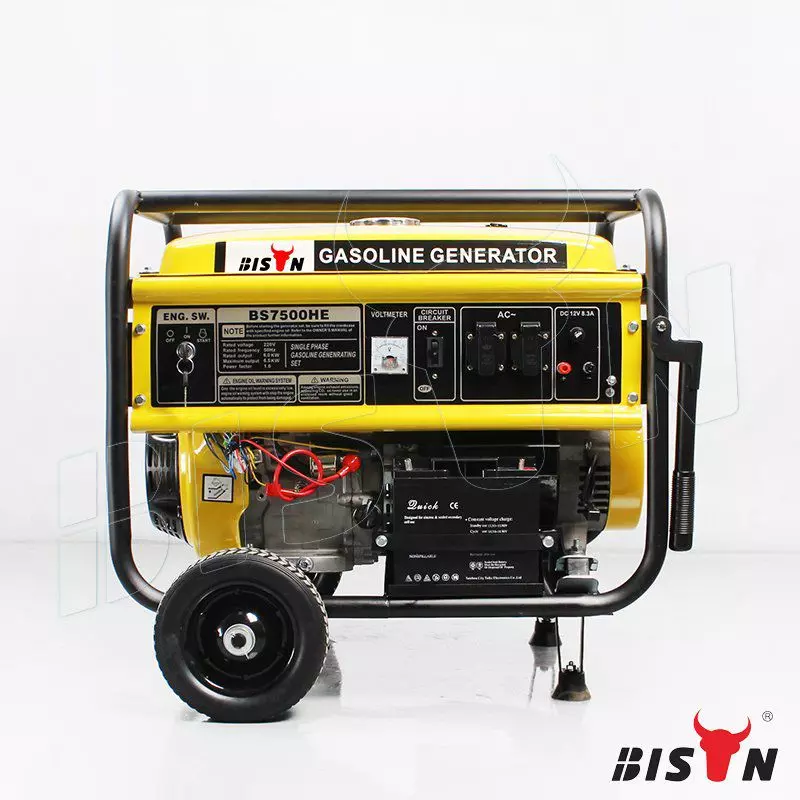How to winterize a generator (5 easy steps)
2022-10-24
Table of content

Did you know that generators require frequent and proper maintenance, especially in winter, so that they can run more efficiently?
As winter weather approaches, we tend to stay indoors and consume more electricity in our homes. We run lights, water heaters, appliances, and other electronic devices all day. This means our home's electrical system is more likely to be overloaded.
Strong winds, ice, snow, and sleet also pose a threat to power lines and electrical equipment. And when extreme weather hits, it becomes more difficult and dangerous for technicians to repair damaged equipment. When this happens, we can be without power for hours or even days.
In chilly weather, we all want to feel safe and secure, and the last thing we need is to become demotivated. In order to maintain our generators in time for the coming winter, fall is the ideal time. Winterization of generators allows you to identify and fix problems with our generators before low temperatures start.
Importance of generator winterization
Winterizing will extend the life of your generator as we have to inspect every part of the generator and make some minor repairs to avoid bigger problems.
Plus, you'll get a longer run time because the carburetor and spark plug clean the fuel to burn properly.
You'll save a lot of money thanks to lower maintenance and fuel costs.
Your machine runs smoothly throughout the winter. No matter how harsh the winter is, your generator will provide you with uninterrupted operation.
Moreover, you will never find dirty CO2 smoke due to complete combustion.
How to winterize a seasonal portable generator
You used your generator to power your camping trip. Now is the time to store your RV and camping gear for the winter. Winterizing the generator before storing it will ensure it can wait for the next season to work again.
1. Drain the fuel line
While cold weather won't affect your generator much, you must drain the fuel lines and tank before storing. Gasoline in the fuel line and tank can corrode without use in about 10 days which results in stopping the carburetor.
2. Clean the carburetor
At the end of the season, clean the carburetor to get rid of any sludge that has accumulated.
3. Change the oil and filter
Another task is to change the oil and filter. Fresh oil will keep parts lubricated in winter. Remember that oils have viscosity grades that meet specific temperatures. When changing your oil for winter, be sure to use an oil designed to work in cold and freezing temperatures.
Cold weather can change the viscosity of the oil, making it harder to flow. The low oil sensor on your generator may instruct it to shut off. Make sure that you are using a winter-grade oil, which is thinner and flows more easily. Check your user manual for its recommendations.
4. Remove the spark plug
Some manufacturers recommend removing the spark plug and plugging the opening to keep debris and dust out.
If you have a dual fuel generator and only run LPG, cleaning the carburetor, tank, or fuel lines is no longer necessary. However, if you run the generator on two fuels, you must clean the tank, check the lines, and clean the carburetor. Propane doesn't leave residue in the pipes because it burns cleaner. Disconnect the propane before storage.
5. Protect it from snow
Please do not leave your generator unprotected where ice and snow can damage it, as melting ice and snow can cause its components to rust and corrode. Your generator should be kept in a dry garage, shed, or another shelter. If this is not possible, place it on a tray or similar foundation to keep it above the waterline and cover it securely with a tarp.
How to winterize a standby generator
Standby generators are often placed near homes or businesses, with shrubs or gardens planted around them as camouflage. As the plants grow, they can overrun the generator and hinder the intake and flow of air.
1. Clear the peripheral brush
Cleaning out the generator area is advisable, as this will also provide clear access for maintenance. Dead leaves left near the generator can ignite and cause a fire.
2. Schedule routine adjustments and cleaning
The next step is to ask a professional to make routine adjustments. A service technician will check all components, clean them, change fluids, and run them to diagnose any potential problems.
To ensure the auto-start feature operates as needed, the technician will also check the battery. Cold weather is no friend of a battery, so we recommend checking its voltage regularly. If the battery is still low, it may be time to replace it before the cold weather begins.
3. Install the battery heater
Installing a battery heater is an additional method of preventing battery drain during cold weather and maintaining the ability to start the generator. When the temperature reaches a certain point, the battery heater turns on and keeps the battery power from being lost.
4. Running regularly

Most standby generators start automatically for 15 minutes per month. If you don't have one, schedule one day a month and remember to activate it. When you require the parts, they are running and oiled thanks to this routine action.
How to winterize a year-round generator
When you use a portable generator, fuel and oil can get dirty and collect in the lines and carburetor. Engines need routine maintenance to be cleaned, lines checked, and parts replaced as necessary. If you didn't do it this season, winter is the time to get it done.
Following the recommended maintenance guidelines ensures that your generator will function properly throughout the winter.
Call a professional technician to repair your generator or perform your routine adjustments. Check all components, clean them, replace fluids, and run them to diagnose any potential problems. Consider using winter fuel additives and changing the oil to winter grades to help your generator run in the cold.
Make sure the battery is charged, and the autostart option is working if your generator has an electric start. Periodic testing of battery voltage is strongly recommended. If the battery is still low, replace the battery before the cold weather begins.
As mentioned, ice and snow can damage your generator. Generator guards are the best protection for generators from moisture that can cause corrosion of wiring and components. Check exhaust vents and vents regularly to make sure snow and ice are not blocking them.
Check exhaust and vents
Remember that the engine of a generator needs airflow to operate efficiently. It is not uncommon for exhaust vents and vents to become blocked by ice or snow during the winter. Heavy snow can cover these areas, and the snow can block access as the freezing occurs. Regular visual inspections to remove any buildup will prevent problems.
Block heater
You might want to think about installing an engine block heater if you reside somewhere where temperatures may drop below zero for extended periods of time. This heater is also known as a water jacket heater. It helps with cold starts by keeping the engine and oil warm. Please note - not every engine block heater will work with every generator. Always check the manufacturer's recommendations for suitability.
How to winterize a commercial diesel generator
Do a thorough inspection
Issues related to engine wear are often overlooked. But they can also cause a significant drop in the efficiency of diesel generators, especially in winter. So, do a thorough inspection of your generator.
Look for any obvious signs of wear or any other signs that may need repair or replacement. If there are any cracked hoses, loose wires, leaks, or other similar signs of deterioration, you should have them checked and repaired immediately to avoid worry in winter.
Clean or replace the oil filter
Commercial diesel generators need oil filters because they prevent trash, minute particles, and other pollutants from entering the engine.
However, if the secondary fuel filter is not absolutely clean or very old, these particles can enter the engine and greatly reduce its performance. In extreme cases, it can also damage the engine's internal parts or other components, resulting in high repair costs.
Change the oil regularly

One of the most crucial components for a generator's efficient operation is diesel engine oil because it lubricates every component of the engine that collaborates to generate power. This is even more important in winter when your generators work extra hard to generate electricity due to the weather and require more oil for better performance.
Oil loses potency over time. Therefore, it becomes essential to change the oil in time to avoid damage to the engine. Therefore, to get the most out of your diesel generator before winter sets in, it is best to replace the oil with new oil.
Taking care of the diesel fuel system
Before you store your commercial diesel generator for the winter, be sure to fill up the tank and carry the fuel system stabilizer with you.
This stabilizer goes directly into the fuel tank and helps maintain fuel quality and reduce fuel evaporation until the generator is ready for use. But to give the fuel stabilizer enough time to reach the entire system, run the engine for 5–10 minutes after adding it.
Test it before storing
One of the simplest methods to ensure that your system performs as planned is to test it. Run the generator for 30 minutes while keeping a tight eye on its operation. Check all parts for good performance, check for leaks, loose joints, etc.
If there are any signs of damage, you'll have time to repair it before finally putting the generator in storage for winter use.
Take the opinion from the expert
When you're ready to store your diesel generator for the winter, it's a good idea to get it checked and serviced before it's too late.
It's not always possible to detect and find out minor problems that might be in the generator or the exhaust and cooling system, so it's important to fix them because these minor problems can quickly turn into significant problems and cause the entire system to fail.
The best way to solve this problem is to listen to experts.
Get it checked out by a professional who can point out any issues with your generator, and you'll have time to repair it. This will work for you in the long run as well.
Timely service is a good habit for any machine, and diesel generators are no exception. From ensuring a long life for commercial diesel engines to ensuring greater efficiency in cold weather, experts will be able to help you do it all with ease.
Conclusion
Even though it's a good idea to winterize generators, freezing conditions can still cause issues. Any beginning issues can be avoided with regular upkeep and use of the generator. Remember, fresh fuel, winter-grade oil, and premium batteries will give you a better chance of success when you have a power outage.
Always refer to the generator owner's manual for any winter recommendations. There is no one-size-fits-all method to winterize your generator because each make and model is unique.
FAQs
Do commercial diesel generators have to be winterized?
Generators are an important tool for meeting backup power needs, and they become an essential part of any business setup as power outages are more likely to occur during the winter. So, to ensure your commercial diesel generator doesn't stop working when needed, it's best to winterize it.
Are there any safety tips to follow when winterizing generators?
Utilizing the generator securely is crucial. Proper ventilation for generators is critical. Second, carbon monoxide is a harmful gas that generators can produce, so install a carbon monoxide alarm. Finally, avoid using the generator in moist locations since this could result in a fatal electric shock.
Can I leave gas in my generator in winter?
No, you can damage your machine because too much moisture and snow can cause corrosion, or water can get into the spark plug compartment or even into the fuel or engine tank.
How can I keep my generator warm in winter?
In order to heat your generator in the real winter, you must operate it regularly and use the battery heater and engine block heater.
Will portable generators freeze in winter?
Your portable generator's engine oil may freeze like a gel in the harsh winter.
Can the generator be placed outside in winter?
Yes, if you have a suitable shelter or generator box without any space for snow or water. If your shelter or generator box has room for water and snow, your generator will be ruined




